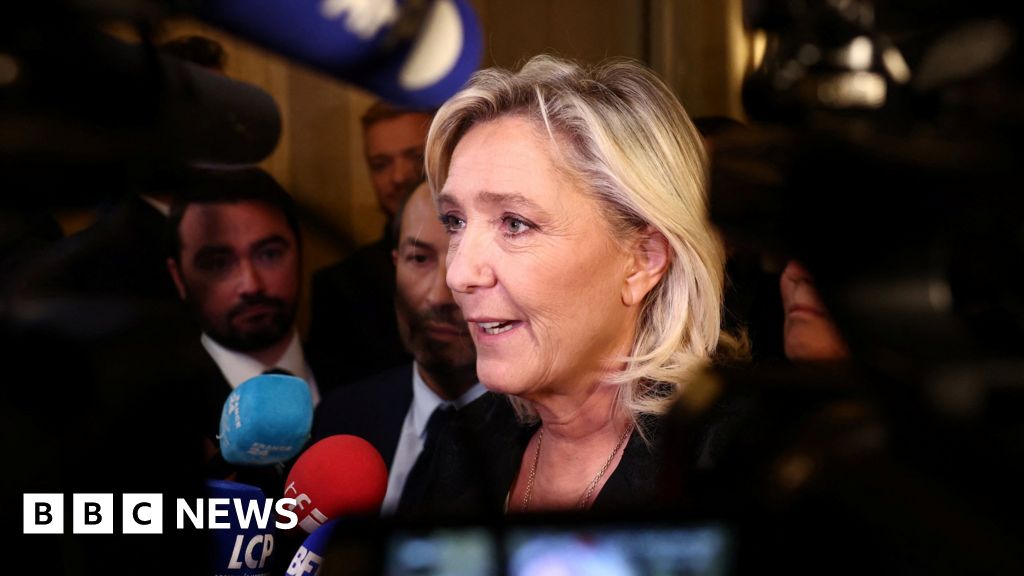Far-right leader Marine Le Pen said the reform represented an “ideological victory” for her party
The French parliament has passed legislation toughening France’s immigration policy after months of political wrangling.
The amended bill was backed by both President Emmanuel Macron’s centrist Renaissance party and Marine Le Pen’s far-right National Rally (RN).
Leftists accused Mr Macron of making concessions to the far-right.
However, so wide was the majority in the lower house that the ruling party did not need Ms Le Pen’s support.
Mr Macron had told his party before the vote in the National Assembly that he did not want to owe victory to the RN. He had said he would rather submit the bill to a new reading rather than let it become law on the basis of RN support, party sources and participants told French news agency AFP.
Some of the measures included in the new legislation include making it more difficult for migrants to bring family members to France and delaying their access to welfare benefits.
An earlier draft failed after MPs from the far-left and the far-right voted it down for opposite reasons.
Human rights groups denounced it as the most regressive immigration law in France in decades.
Ms Le Pen welcome the amended bill, saying: “We can rejoice in ideological progress, an ideological victory even for the National Rally, since this is now enshrined into law as a national priority.”
Conservatives also welcomed the changes. “This is our bill,” said Eric Ciotti, the leader of the Republican party. He called the bill “firm and courageous”.
Left-wingers expressed disappointment, accusing Mr Macron of enabling the far-right.
“With this text directly inspired by RN pamphlets against immigration, we are facing a shift in the history of the republic and its fundamental values,” said French Communist Party leader Fabien Roussel.
Mr Macron’s centrist Renaissance party lost its majority in parliament in elections in June 2022. Since then, the government has frequently found itself unable to win votes in parliament.

Emily Foster is a globe-trotting journalist based in the UK. Her articles offer readers a global perspective on international events, exploring complex geopolitical issues and providing a nuanced view of the world’s most pressing challenges.








